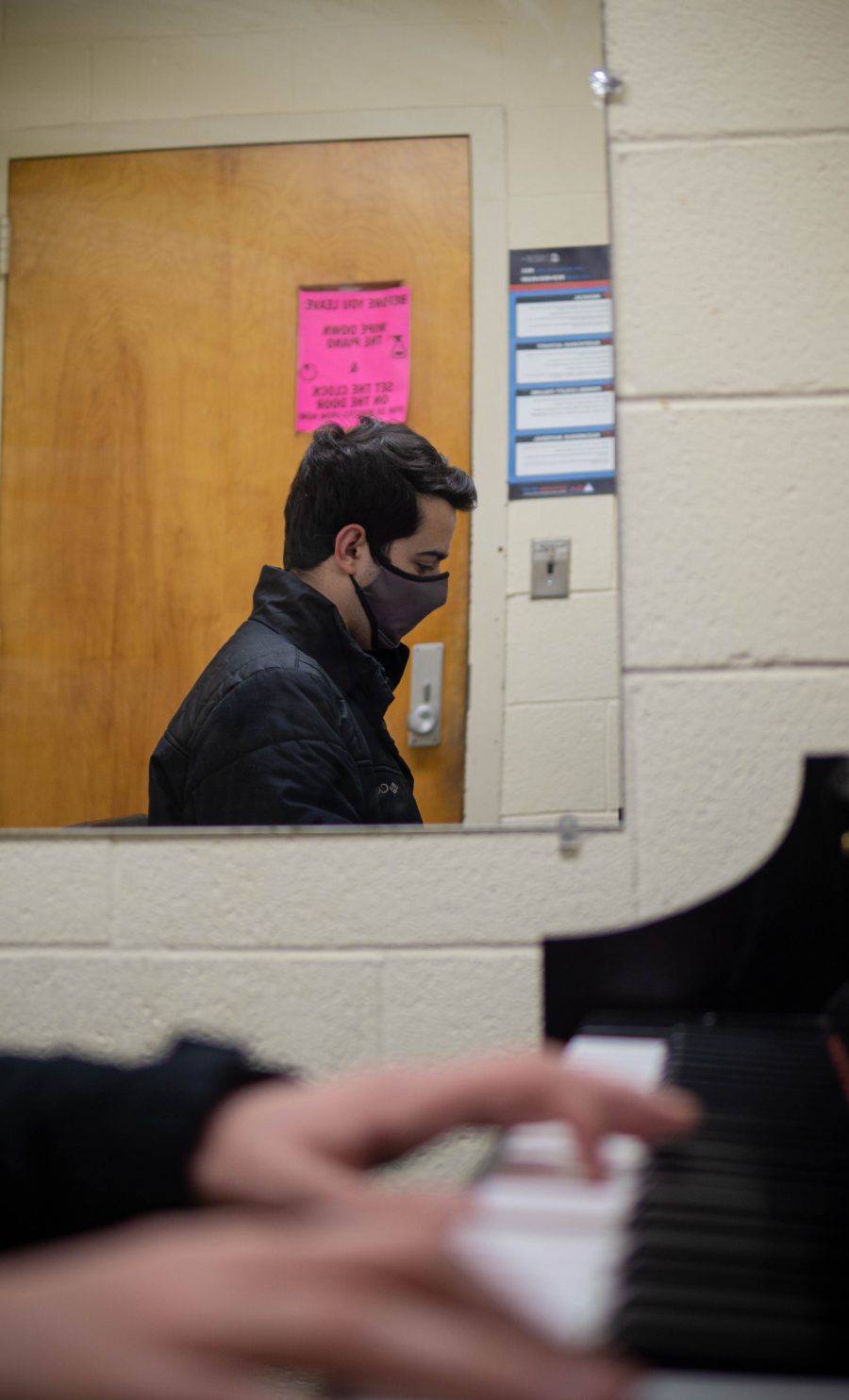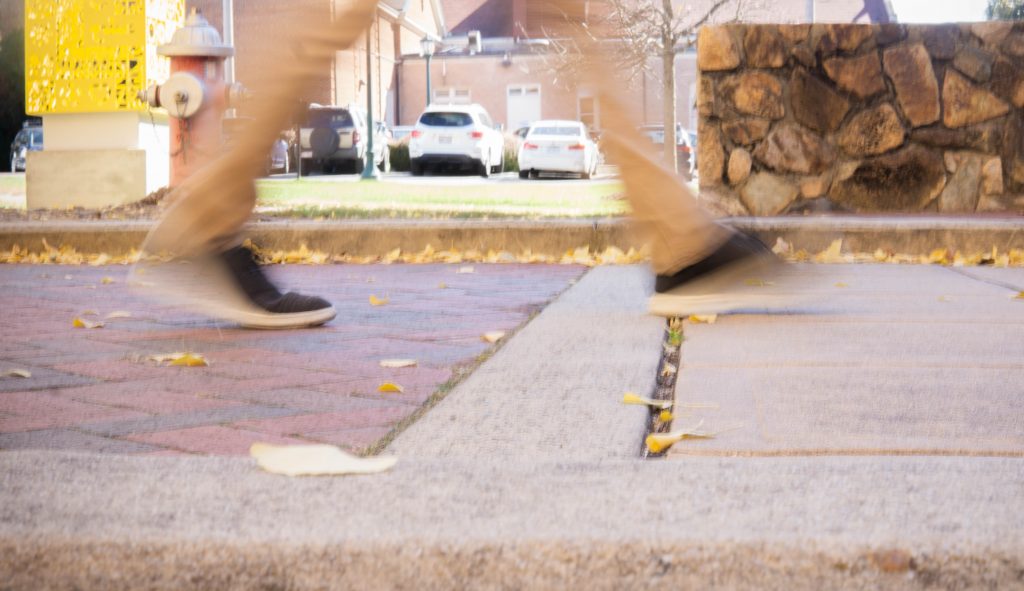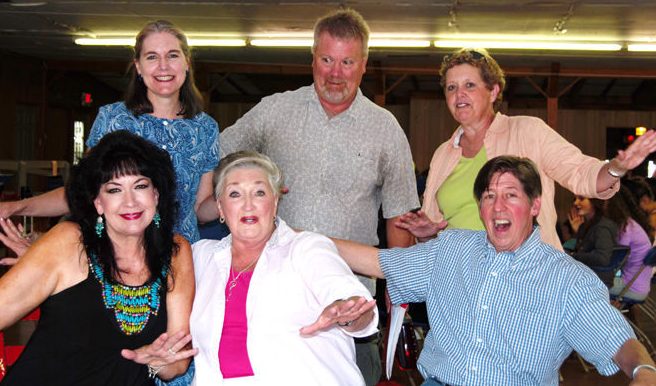Obsessive Compulsive Disorder – commonly known as OCD – is often depicted in television as the need to clean or organize. But not everyone with OCD has those compulsions. OCD can affect what people think and even the way they walk – not always depicted in the entertainment industry.
One UNC student with OCD decided to change that. He wrote a musical to represent others like him.

Gian Gibboney, a UNC senior with a double major in music and psychology, practices piano in Hill Hall. Photo by Daniela Rodriguez / UNC Media Hub
It’s lunchtime in Chapel Hill and UNC Senior Gian Gibboney walks to Panera Bread stepping on the black asphalt with his left foot. Left, right, left, right, left, right until he reaches a brick sidewalk. Then, he needs to restart with his left foot.
” If it changes by like texture or color or something then it kind of like resets there,” Gibboney said.
Four years ago, If he screwed up his walking pattern he would have gone back and corrected it.
“I don’t think I would do that now,” Gibboney said. “I think I kind of, I’ve gotten better at not letting the compulsion of it get in the way of me like just continuing on. ”
This is a form of OCD or Obsessive-Compulsive Disorder that Gibboney deals with every day.
According to the Anxiety and Depression Association of America, OCD affects about 1 percent of the population. Fear of contamination and perfectionism are two more popularly known types of OCD, but not the only forms.
Jonathan Abramowitz, a UNC psychology and neuroscience professor, said people with OCD can have unwanted thoughts that are the opposite of a person’s personality. Another form: responsibility for harm.
“That nagging doubt, what if I didn’t do enough to you know lock the house up before I left?” Abramowitz said. “What if I left the door unlocked? What if I didn’t do enough?”
Abramowitz said those types of OCD aren’t well depicted in the entertainment industry.
“You see a lot of people, in the media, ‘I’m so OCD’ you know ‘I wash my hands’ or ‘I like everything neat,’” Abramowitz said. “It’s kind of degrading to people who have OCD. It’s not a joke, it’s not something to be made fun of or taken lightly. People who have this, they suffer. This is really distressing to them. It gets in the way.”
Gibboney was also frustrated with that representation so he wrote his own. His musical, “Onward, Chef Dominguez!” follows Chef Sofia Dominguez, a Puerto Rican chef battling OCD and aspiring to open her own pastry shop.
Her character parallels Gibboney reflecting his own Puerto Rican background and depicting his ritual actions like passing a glass of water so it touches both his hands before he takes a sip. Gibboney wrote OCD as its own character to show how it tricks the brain into thinking it needs to perform these checking habits.
Eloise Williams, a UNC senior, produced the performance. Like Gibboney, Williams copes with OCD every day – calling it a full-time job. She said she felt empowered watching Sofia confront her OCD thoughts.
“I hope that anyone else who’s dealt with it who’s like me going through it experiences, the same thing that I experience watching it which is getting that reminder that you are not powerless,” Williams said. “Even though progress is not linear and it’s not perfection, the little victories still matter.”
Gibboney attends therapy to help reduce his OCD symptoms to a manageable level. And just like Chef Dominguez, Gibboney said he feels he can move onward and not be defined by his OCD.
Lead Photo by Daniela Rodriguez / UNC Media Hub
Chapelboro.com does not charge subscription fees. You can support local journalism and our mission to serve the community. Contribute today – every single dollar matters.



